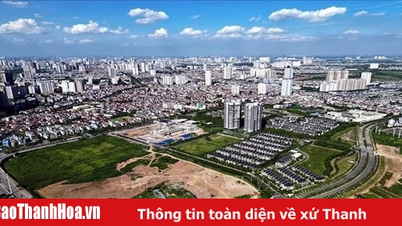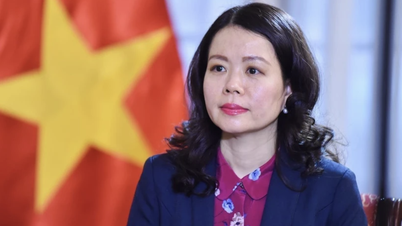Raising prices is not wrong - but there is a lack of debate and consensus
Electricity prices are not just a mere number in the cost of living statement or the financial report of a business. Electricity prices are an indicator reflecting the level of infrastructure development and fairness in access to essential services. When electricity prices increase, even if the increase is only a few percent, the spillover effects do not stop at the level of an individual electricity bill increasing by a few tens of thousands of dong, but can lead to far-reaching consequences in terms of society, economy and public opinion.
In recent times, Vietnam Electricity Group (EVN) has continuously proposed and implemented electricity price adjustments for the same reason: increasing input costs, prolonged business losses, and the need to ensure energy security and investment for development.
Price increases are inevitable in a market economy. However, what makes public opinion concerned is the method of price increases, the level of transparency in information, and the lack of independent control mechanisms to ensure consumer rights.

Notably, EVN is a company that holds a monopoly in the transmission and distribution of electricity and is both a producer, a buyer, a seller, and also an agency that increases prices and recommends price increases. This situation of “both playing football and blowing the whistle” if not controlled transparently and without an independent audit mechanism will lead to price increases becoming a “tool to compensate for losses for businesses”.
According to Associate Professor Dr. Ngo Tri Long - Former Director of the Institute for Price Market Research ( Ministry of Finance ), "There needs to be an independent agency to assess EVN's electricity production and business costs, and we cannot let businesses both play football and blow the whistle. Giving EVN full authority to increase prices is not transparent and can easily lead to abuse of market power."
Thus, the lack of full disclosure of costs, revenues and profits/losses at each stage in the electricity supply chain: generation, transmission, distribution and retail, does not know which stage EVN is currently losing money at? How is its operational efficiency? Are management and investment costs reasonable?
In addition, the key point is that consumers - who are directly affected - have almost no access to complete information to assess the legitimacy of price adjustments. As a result, each increase in electricity prices creates a wave of negative reactions in society, many people are worried because their electricity bills increase sharply according to the ladder price list, especially during hot months.
Manufacturing enterprises, which are already facing many difficulties due to high costs of raw materials and logistics – and additional input burdens, directly affect their competitiveness and investment plans.
Meanwhile, economic experts warn that short-term increases in electricity prices will push up inflationary pressure, have a chain reaction on prices of consumer goods and services, thereby affecting the goal of stabilizing the macro economy.
Energy expert Nguyen Thanh Son - Former Director of the Red River Delta Coal Project Management Board (Vietnam National Coal - Mineral Industries Group) said: "Electricity cannot be considered a normal commodity. Electricity prices affect the entire economy and people's lives, so adjustments need to be widely consulted, with criticism and close supervision from legislative agencies and society."
So it can be said that the increase in electricity prices is not wrong, if the price increase is necessary, reasonable and transparent. But increasing electricity prices while there are still loopholes such as: inadequate monitoring mechanism, and people being left out of the decision-making process, this is really a big question mark in EVN's electricity price increase process.
Is it appropriate to give EVN the power to increase electricity prices?
Decree No. 24/2023/ND-CP on the mechanism for adjusting average retail electricity prices, replacing Decision No. 24/2017/QD-TTg, is a systematic adjustment in electricity price management, demonstrating the trend of giving more autonomy to Vietnam Electricity Group (EVN), but also raising many concerns about transparency, publicity and control of power in the field of natural monopoly.
The notable highlights are the granting of more proactive authority to EVN in price adjustment. Accordingly, EVN is allowed to decide to adjust the average retail electricity price within certain thresholds, specifically: When input costs increase from 3% to less than 5%: EVN has the right to decide and adjust electricity prices.
When the cost increases from 5% to less than 10%: EVN prepares a dossier and submits it to the Ministry of Industry and Trade for consideration and decision. From 10% or more: EVN prepares a dossier and submits it to the Ministry of Industry and Trade to report to the Prime Minister for consideration. Meanwhile, according to Decision No. 24/2017/QD-TTg, EVN does not have the right to adjust prices on its own but must wait for approval from the competent state agency.
In addition, the electricity price adjustment process is clearer, clearly stipulating the maximum electricity price adjustment cycle once every 6 months and adding the requirement of publicity and transparency, when requiring EVN to publish the audited annual electricity production and business cost report, as well as the basis for changing the electricity price. These are progressive points when implemented seriously.
However, experts assess that besides the advantages, there are still "gaps" that need to be studied and specifically improved: Associate Professor, Dr. Bui Quang Tuan - Director of the Vietnam Economic Institute commented: "Adjusting electricity prices is not only a financial issue of EVN, but also a story of social security and macroeconomic stability. It is necessary to look at it in the overall fiscal - monetary - price policy, not just from the perspective of balancing business profits and losses."
Sharing the same view, Dr. Le Dang Doanh - Economic expert also said: "Increasing electricity prices in the context of people's lives still being difficult and economic recovery not yet stable is something that needs to be carefully considered. Especially when there is no transparent mechanism and strict supervision, the fact that EVN has full authority to adjust prices is very worrying."
Assoc. Prof. Dr. Ngo Tri Long - Former Director of the Institute for Price Market Research (Ministry of Finance): "Currently, EVN is a state-owned enterprise holding a monopoly position, while the mechanism for monitoring electricity prices is still loose, the increase in electricity prices is mainly based on EVN's own reports without a third agency verifying input costs."
Accordingly, it is necessary to carefully review the shortcomings of the monitoring mechanism and the risk of monopoly, especially when EVN is the only enterprise providing electricity on a large scale. Giving too much power to a monopoly enterprise to adjust prices within a range of 3-5% is a dangerous precedent because it will be difficult to ensure objectivity without strict inspection and supervision.
Not to mention other issues such as the lack of role of independent auditing agencies, meanwhile, input costs, investment rates, depreciation costs, etc. are all items that are easily "figured" leading to the risk of legalizing unreasonable costs, which is the basis for price increases.
In particular, EVN’s current electricity price increase process lacks a mechanism for criticism from consumers, social organizations and independent experts. Even a 3% to 5% price increase will have a chain reaction on prices, inflation, people’s lives and business competitiveness.
From that, it can be seen that without an independent, transparent and socially critical monitoring mechanism, giving EVN the power to increase electricity prices will potentially pose risks of group interests, causing social instability.
With EVN being allowed to decide electricity prices by its own mechanism, people and businesses are facing a new reality that electricity prices can increase at any time, while the ability to object and monitor is almost zero.
Therefore, each increase in electricity prices is now not only an economic issue, but also a test of public confidence when cost pressures weigh heavily on production and daily life. The next installment of the series will analyze in more depth these “new consequences”, from a microeconomic perspective to social reactions./.
Source: https://baodaknong.vn/tang-gia-dien-ky-1-can-minh-bach-va-dong-thuan-de-tranh-he-luy-254567.html


































































































Comment (0)